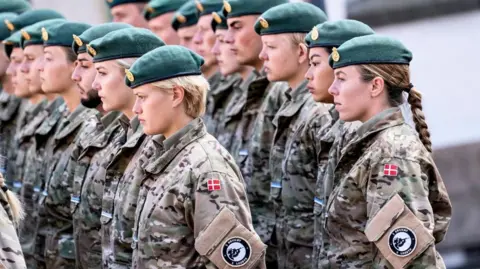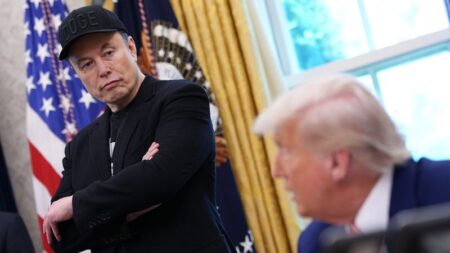The landmark decision by the Danish Parliament signifies a significant shift in the country’s approach to military service, as Danish women are set to face conscription through a lottery system that starts when they turn 18. This historic change, prompted by concerns over heightened security in Europe, comes at a time when NATO member states are increasing their defense expenditures. As of now, women were eligible to serve in the military but could do so voluntarily. This reform brings them into a mandatory conscription framework alongside their male counterparts.
Under the new regulations, both young men and women who reach the age of 18 will be required to register for potential military service. The Danish government intends to recruit volunteers first, and should the numbers fall short, a lottery system will fill the gaps. Alongside this new inclusion, the length of mandatory military service is set to increase from a brief four-month period to 11 months, representing a significant commitment for the youth entering military life.
In 2024, approximately 4,700 individuals, comprising about 24% female volunteers, completed a short-enlistment program with Denmark’s military. The implementation of the conscription lottery is expected to elevate the total number of individuals serving annually to around 6,500 by the year 2033, establishing a stronger military presence. Denmark is following a trend observed in neighboring countries such as Sweden and Norway, which have already included women in their conscription frameworks in recent years.
This renewed conscription model emerges against the backdrop of Denmark’s recent commitment to increase defense spending by 40.5 billion Danish crowns (£4.3 billion, or $5.9 billion) over the next five years to meet NATO targets. With current military personnel numbers around 9,000, this transformation aims to bolster the Danish armed forces in response to contemporary security challenges.
Colonel Kenneth Strom, the head of the conscription program in Denmark, indicated that the changes were driven by political consensus amongst various governing parties, influenced by the perceived global security climate. He emphasized the necessity for greater combat readiness and the acquisition of essential skills for all military branches, including the Army, Navy, Air Force, and Special Operations Forces.
Adding a personal perspective, a volunteer currently serving in the Danish military named Katrine articulated her viewpoint that with the shifting global dynamics, it is essential for women to contribute to defense equally alongside men. She expressed optimism about the changes, believing that the conscription of women could enhance military capabilities.
The ongoing discussions and reforms concerning women in the military are indicative of a broader trend towards gender equality in armed forces globally. As the world continues to grapple with various security threats, countries are re-evaluating conventional military structures, ensuring inclusivity and preparedness in their defense strategies.
This development in Denmark’s military policy reflects not only the evolution of gender roles in defense but also highlights the increasing urgency for sovereign nations to fortify their military positions in an unpredictable geopolitical landscape. The change underscores a commitment to building a more inclusive and robust military force that can respond effectively to future challenges. By embedding women into the conscription framework, Denmark sends a clear message about the critical role both genders play in securing national defense and underscores its dedication to modernizing military service to meet contemporary needs.
Overall, Denmark’s historical decision sets a precedent for other nations to consider similar measures, further fostering an inclusive and equal military environment as modern threats evolve and change.











